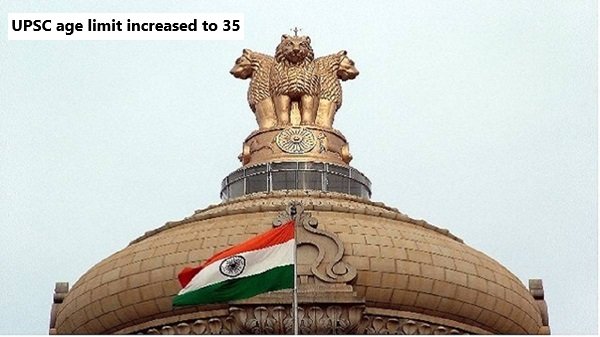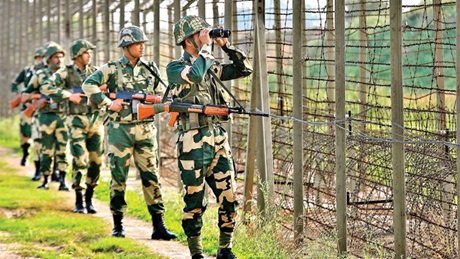The Union Public Service Commission (UPSC) plays a crucial role in shaping the administrative structure of India. It conducts the Civil Services Examination (CSE), a prestigious gateway to roles such as IAS, IPS, and IFS officers. A significant change that has sparked widespread discussion is the announcement of the UPSC age limit increased to 35. This policy shift has implications for aspirants, the competitive landscape, and the broader public administration system.
In this article, we explore the significance of UPSC age limit increased to 35, its potential impact, and the debates surrounding it.
What Does the Change Mean?
The announcement that the UPSC age limit increased to 35 reflects a broader effort to make the examination process more inclusive. Previously, the upper age limit for general category candidates was 32 years, with relaxations for reserved categories. By increasing the age limit to 35, UPSC is offering additional opportunities to aspirants who might have otherwise aged out.
Why Was the UPSC Age Limit Increased to 35?
The decision to increase the age limit to 35 stems from multiple factors:
- Inclusivity: Many candidates, particularly those from rural or underprivileged backgrounds, begin their preparation late due to lack of resources. The increased age limit ensures they have a fair shot at the exam.
- Professional Experience: Allowing older candidates brings a pool of individuals with diverse professional experiences, enriching the public service cadre.
- Changing Education Trends: With more students pursuing higher studies and delaying entry into competitive exams, the decision accommodates this demographic shift.
Key Changes with the UPSC Age Limit Increased to 35
- Eligibility Expansion: The UPSC age limit increased to 35 expands the eligibility criteria for general category aspirants, while reserved categories also benefit proportionally.
- Increased Attempts: The extended age also allows for additional attempts, making the process less restrictive.
- Impact on Preparation Dynamics: Older candidates may bring maturity and experience, potentially influencing the competitive dynamics of the exam.
Advantages of the UPSC Age Limit Increased to 35
The policy shift brings several advantages:
- Enhanced Opportunity: Candidates who started late due to financial or personal constraints get a second chance to pursue their dream.
- Diversity in Public Administration: A broader age range may lead to a more diverse administrative workforce, incorporating varied perspectives.
- Better Prepared Candidates: Older aspirants often have more life and work experience, making them better equipped to handle real-world administrative challenges.
Criticisms and Concerns
Despite the benefits, the decision to have the UPSC age limit increased to 35 has not been without criticism:
- Tougher Competition: Younger aspirants may face stiffer competition as older candidates bring more experience and maturity to the table.
- Administrative Concerns: Critics argue that older recruits may have shorter careers in the service, impacting long-term succession planning.
- Potential for Burnout: Preparing for UPSC is demanding, and extending the age limit may lead to prolonged stress for candidates.
Preparing for UPSC: Strategies Post Age Limit Change
With the UPSC age limit increased to 35, aspirants need to adapt their strategies. Here are some tips:
- Time Management: Older candidates should balance their preparation with existing Professional or family responsibilities.
- Leveraging Experience: Use past work or life experiences to strengthen answers in the personality test and interviews.
- Focused Preparation: With fewer years left for a government career, prioritize efficient and targeted preparation.
Impact on Reserved Categories
The UPSC age limit increased to 35 also affects reserved categories proportionally. For example:
- OBC Candidates: The age limit increase for OBC candidates now stretches to 38 years.
- SC/ST Candidates: Aspirants from these categories may now apply until the age of 40.
- PwD Aspirants: Candidates with disabilities also benefit from extended age criteria, improving inclusivity.
Public Reaction to UPSC Age Limit Increased to 35
The decision to increase the age limit has elicited mixed reactions:
- Supporters: Many hail it as a progressive move that ensures equal opportunities for all, especially late starters.
- Critics: Some believe it adds to the already intense competition, making it harder for younger candidates.
Social media platforms are abuzz with debates, reflecting both sides of the argument.
Historical Perspective: Age Limits in UPSC
The age criteria for UPSC have evolved over the years. Initially, the age limit was set at 24 years for general candidates, but it has gradually increased over decades to accommodate societal and educational changes. The UPSC age limit increased to 35 marks one of the most significant shifts in recent history.
Comparative Analysis: Age Limits in Other Countries
In other countries, civil service exams often have varying age limits:
- United States: Age limits vary by role, but many administrative positions welcome older candidates.
- United Kingdom: No strict upper age limit exists, emphasizing inclusivity.
- India: The UPSC age limit increased to 35 brings it closer to global practices, promoting fairness and accessibility.
Implications for Coaching Institutes
The UPSC age limit increased has a ripple effect on coaching centers:
- Increased Enrollments: With more eligible candidates, institutes may see a rise in enrollments.
- Tailored Courses: Institutes may develop courses catering specifically to older candidates with different learning needs.
Success Stories: Aspirants Benefiting from the Change
Since the announcement, many aspirants have expressed renewed hope. Here are a few inspiring anecdotes:
- “I had almost given up after crossing 32, but the age limit increase has reignited my dreams of serving the nation.”
- “As a working professional, I now have a better chance to prepare without sacrificing my job.”
These stories highlight the positive impact of the UPSC age limit increased .
Challenges Ahead
While the UPSC age limit increased is a welcome move, challenges remain:
- Exam Volume: UPSC may need to handle a larger volume of applications.
- Training and Induction: Older recruits may require tailored training programs to align with their varied backgrounds.
Policy Insights: Balancing Opportunity and Efficiency
The government’s decision reflects an effort to balance opportunity and efficiency. The UPSC age limit increased opens doors for many while aiming to ensure that India’s civil services remain robust and effective.
Future Prospects of the Change
The long-term impact of the UPSC age limit increased remains to be seen. However, the change aligns with evolving societal norms and a growing emphasis on inclusivity.
Conclusion:
The decision to have the UPSC age limit increased marks a transformative moment in the history of the Civil Services Examination. It reflects a commitment to inclusivity, fairness, and adaptability in one of the most challenging and prestigious examinations in India. While debates will continue, the move undoubtedly provides a fresh lease of life to thousands of aspirants who now see a renewed opportunity to fulfill their dreams of serving the nation.



